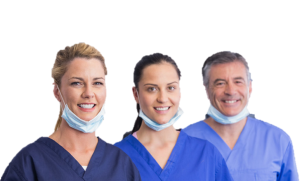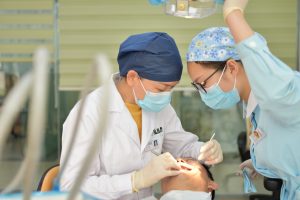James Craig (Interim Committee SDA Member) was speaking to Angie Brown (BBC News Scotland Reporter).
The article can be found here and the full statement can be read below.
“The majority of dental practices in Scotland are private contractors for NHS services. Every practice has unique circumstances and therefore varying levels of NHS and private treatment provision. For many practices, the private services they offer are the only way to subsidise the low remuneration received for NHS treatments in order to remain financially viable but also to give patients as much choice as possible.
NHS items of treatment are set by the Scottish Government and have been restricted to reduce patient numbers attending practices during the COVID pandemic. There are still restrictions imposed for Aerosol Generating Procedures (AGPs). Some practices are unable to provide AGPs if their surgeries do not have adequate ventilation such as a window. For practices that can, there is a 1 hour fallow time that has to be followed after any AGP unless extra ventilation measures are put in place. These restrictions mean that the capacity of practices are massively reduced for seeing patients.
Current treatments NHS practices are allowed to provide (non-aerosol generating procedures):
Oral cancer screening/soft tissue examination
X-rays
Temporary fillings
Simple extractions
Simple denture repairs/treatments
Emergency AGPs can be provided for patients in pain only and this often does not allow for completing treatments to an optimal standard. In order to provide AGPs, dentists and dental nurses need to be face fitted with NHS enhanced PPE masks. In Lothian, face fitting has been limited to one dentist and nurse per practice though many practices that have completed this process have received out of date stockpiled masks that have been “revalidated” by the NHS without safety approval from the mask manufacturer.
Many practices have invested significantly in their own privately sourced enhanced PPE and face fitting for dentists and staff. They have also invested in expensive ventilation and air purifying equipment in order to reduce fallow times and have been approved by their regulatory and legal indemnifiers to provide private AGPs. Similar with any other businesses where there is supply and demand and a need to pay for staff wages and practice overheads, practices can charge patients privately for those who want treatments that are not available on the NHS.
Dental practices are a safe and controlled environment with strict cross infection control measures that were well established pre-COVID and have been enhanced during the pandemic. All practices that are treating patients follow standard operating procedures to ensure the safety of staff and patients.”
Additionally James Craig has said.
“Dentists are thankful that we can treat our patients face to face after the enforced practice closures earlier in the year. Dental problems can affect quality of life significantly and our patients have been grateful that we have been able to help them, preventative care is an important part of this. The dental profession in Scotland would like The Scottish Government to engage with us to plan a way forward for NHS services that is financially viable for practices but also suitable for patients that cannot afford private care. We have not been consulted on plans for NHS dentistry and the dental sector is concerned that we will be forced into a position that is not feasible for our businesses. Without clarity from The Scottish Government, we cannot properly inform our patients of what the future holds for NHS dentistry.”









